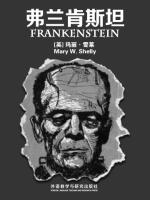The Creator’s Curse
用户820817
The Creator’s Curse: When Scientific Ambition Collides with Human Nature
Mary Shelley’s *Frankenstein* (1818) is far more than a Gothic horror
novel. Born from a stormy night by Lake Geneva, this tale carries a
prophetic warning about the eternal clash between scientific ambition
and human morality. Victor Frankenstein is not merely a mad scientist—he
is the archetype of every innovator who dares to defy natural limits.
The moment he succeeds in animating lifeless flesh, he unknowingly seals
his own doom—not from the monster’s vengeance, but from the inherent
curse of knowledge overreach. Frankenstein’s tragedy begins with a
naive optimism toward science. The young scholar believes that "the
principle of life might be discovered," and that death itself could
be defied. This belief is not inherently evil—the true sin lies in his
utter disregard for the consequences of his creation. In his obsessive
labor, he never pauses to consider how this new being will exist, what
pain it might endure, or what place it could claim in the world. Here,
scientific pursuit reveals its darkest flaw: when divorced from ethics,
it becomes pure hubris, a reckless attempt to play God. The
Creature’s awakening is one of literature’s most haunting moments. The
opening of its dull yellow eyes marks not a triumph of life, but the
beginning of an ethical catastrophe. Stitched together from stolen
corpses, the monster becomes the perfect metaphor for unchecked
creation—meant to be a marvel, yet damned by its creator’s abandonment.
Rejected and alone, it evolves from an innocent into a vengeful force,
mirroring humanity’s own capacity for both wonder and cruelty.
Shelley’s genius lies in her ambiguity: who is the real monster? The
deformed, murderous Creature, or the man who refused to take
responsibility for his own creation? *Frankenstein* is not just a
warning about "science going too far"—it is a timeless
examination of accountability. Every breakthrough carries a shadow;
every act of creation demands stewardship. Two centuries later, as we
stand on the brink of AI, genetic engineering, and other modern
"Promethean" endeavors, Shelley’s question echoes louder than
ever: **When we dare to create life—whether of flesh or code—do we have
the wisdom to care for what we’ve made? The answer, it seems, still
lies in the darkness, waiting.



 京公网安备 11010802032529号
京公网安备 11010802032529号